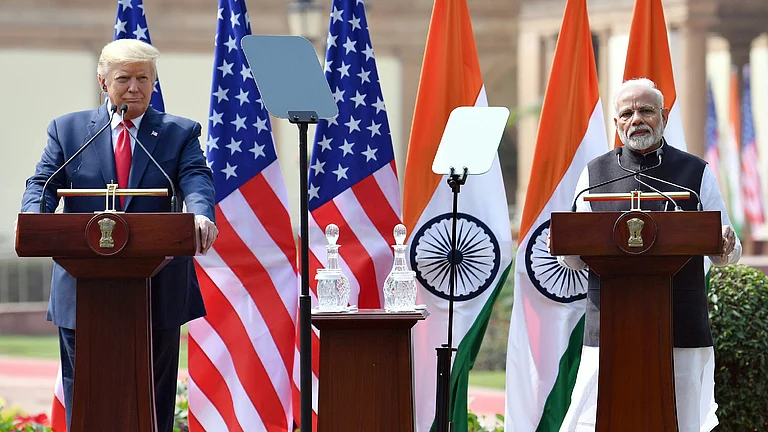President Donald Trump’s proposal for "reciprocal" tariffs seeks to align US import duties with those levied by its trading partners, a move aimed at addressing trade imbalances and bolstering domestic industries. However, analysts suggest that the measure is unlikely to have a significant impact on India and may even prove beneficial to Indian consumers.
While Washington has already imposed unilateral tariffs on steel and aluminium, it has yet to clarify whether the reciprocal tariff framework will apply to specific products or broader sectors.
The Reciprocal Plan is designed to counter perceived non-reciprocal trading arrangements by establishing tariff parity with each trading partner. Developing economies such as India, which maintain extensive trade ties with the U.S., may need to adjust their policies to mitigate potential disruptions.
“Given the overwhelming dependence of most developing countries on the US market for their exports, they are likely to be compelled to come to the negotiating table and accommodate US interests,” said Abhijit Das, trade expert and former Head of the Centre for WTO Studies, Indian Institute of Foreign Trade.
No Immediate Impact on India
With India reducing the custom duties on 40 items, the country is trying its best to live down its‘high tariff’ image. “We have drastically reduced and simplified tariffs belying the usual narrative that tariffs in India are too steep,” said Nirmala Sitharaman during the post budget media briefing.
Given these recent steps, India is unlikely to face significant repercussions from the reciprocal tariff policy. However, to avoid potential trade friction, New Delhi must move proactively toward tariff rationalisation across key sectors.
“Given the differences in the export profiles of the two countries, reciprocal tariffs may not have a significant impact. For example, if the US charges 50% reciprocal tariffs on Indian pistachios because India charges the same, India is happy as it does not export pistachios,” said Ajay Srivastava, Founder, Global Trade Research Initiative (GTRI).
Similarly, 75% of US exports to India, by value, attract less than 5% of tax. In contrast, many labour-intensive Indian goods like textiles, garments, and footwear, facehigh US tariffsranging 15-35%. However, India may need to do more to assuage a truculent Trump and safeguard its trade relations with the world’s biggest economy by minimising its non-tariff barriers as well.
Consumers to be Benefitted?
India’s decision to lower customs duties and tariffs is expected to reduce the cost of select imported goods, offering relief to consumers, according to experts. In a notable move, New Delhi has cut tariffs on bourbon whisky from 150% to 100% amid ongoing trade discussions with the Trump administration. The adjustment is set to make US brands such as Jack Daniel’s and Jim Beam more affordable. India consumers will not complain if the same is extended to other items as well. This is more than probable. Says Dr Arpita Mukherjee, professor and senior researcher at Indian Council for Research on International Economic Relations (ICRIER): “India will need to lower tariffs on other items as well, making the market more competitive. This could eventually lead to lower prices, benefiting Indian consumers the most.”
Striking a Fair Deal
Developing countries like India can take this as an opportunity to improve trade relations with the US, according to the experts. Also, with lowering of tariffs, India could be in a better position to strike superior bargains in terms of trade deal.
“If we have a high tariff regime, this is a good time to clean up. With high custom duties, our bargaining power stands compromised. For bargaining and securing good deals, we must lower duties across board,” adds Mukherjee.
Alongside, developing countries like India could trade lowertariffs with a more accommodating US stance on other important fronts. “If these countries lower their tariffs, they must insist on firm and enforceable commitments from the US to transfer technology in key emerging sectors,” concludes Abhijit Das.































